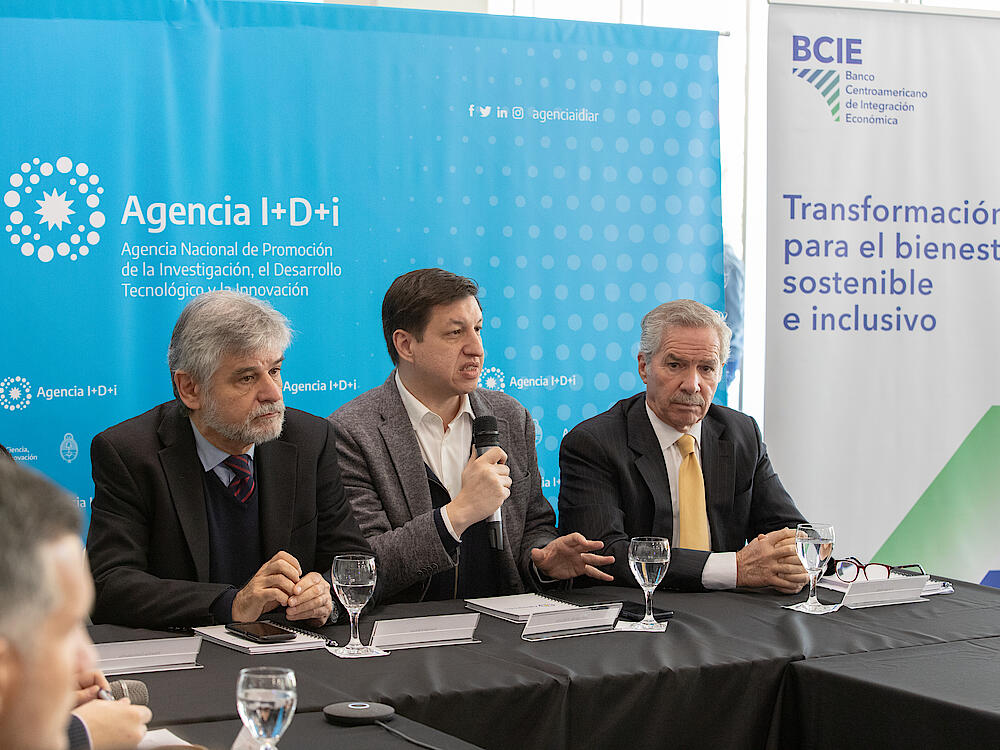CABEI and the Republic of Argentina promote Graduate Scholarship Program for Central American Students

The scholarships will be aimed at higher education graduates from Costa Rica, El Salvador, Guatemala, Honduras, Nicaragua, Panama, Belize and the Dominican Republic.
Buenos Aires, July 18th, 2023.– In order to strengthen capacities in the science, technology and innovation sectors in Central America and the Caribbean, the Central American Bank for Economic Integration (CABEI) and the National Agency for the Promotion of Research, Technological Development and Innovation of Argentina launched the "Graduate Scholarship Program for Central American Students in Argentine Universities (BEC)" on Tuesday.
The initiative is part of the "Program for Strengthening Research and Development Capacities (PROFOCAID)", which is being implemented in Argentina with CABEI's financial support, and is made up of two segments; the first, called Pulsar Scholarships, which will provide 1,000 students with exclusive access to virtual master classes for a period of three months and will be a prerequisite for access to the second segment - Master's Scholarships (MEC), which will last two years.
The MEC Scholarships will be focused on priority sectors such as: health sciences, social sciences, engineering (transportation, environmental, logistics, and water), mathematics, chemistry, green production, food technology, transition and digital technologies, and urban planning.
CABEI reiterates its commitment to scientific research and with actions such as the one presented here - will continue to support its member countries through different credit and technical assistance operations for the execution of projects in education and training of people, a key tool for achieving levels of growth that ensure and increase formal and inclusive jobs and reduce inequality of opportunities and income for Central Americans.
Through the Pulsar platform: www.puls.ar/programa-bec those interested can obtain more information and register for the BEC Program.



![[Translate to English:] [Translate to English:]](/fileadmin/_processed_/3/f/csm_MicrosoftTeams-image__179__f40848df6b.png)


